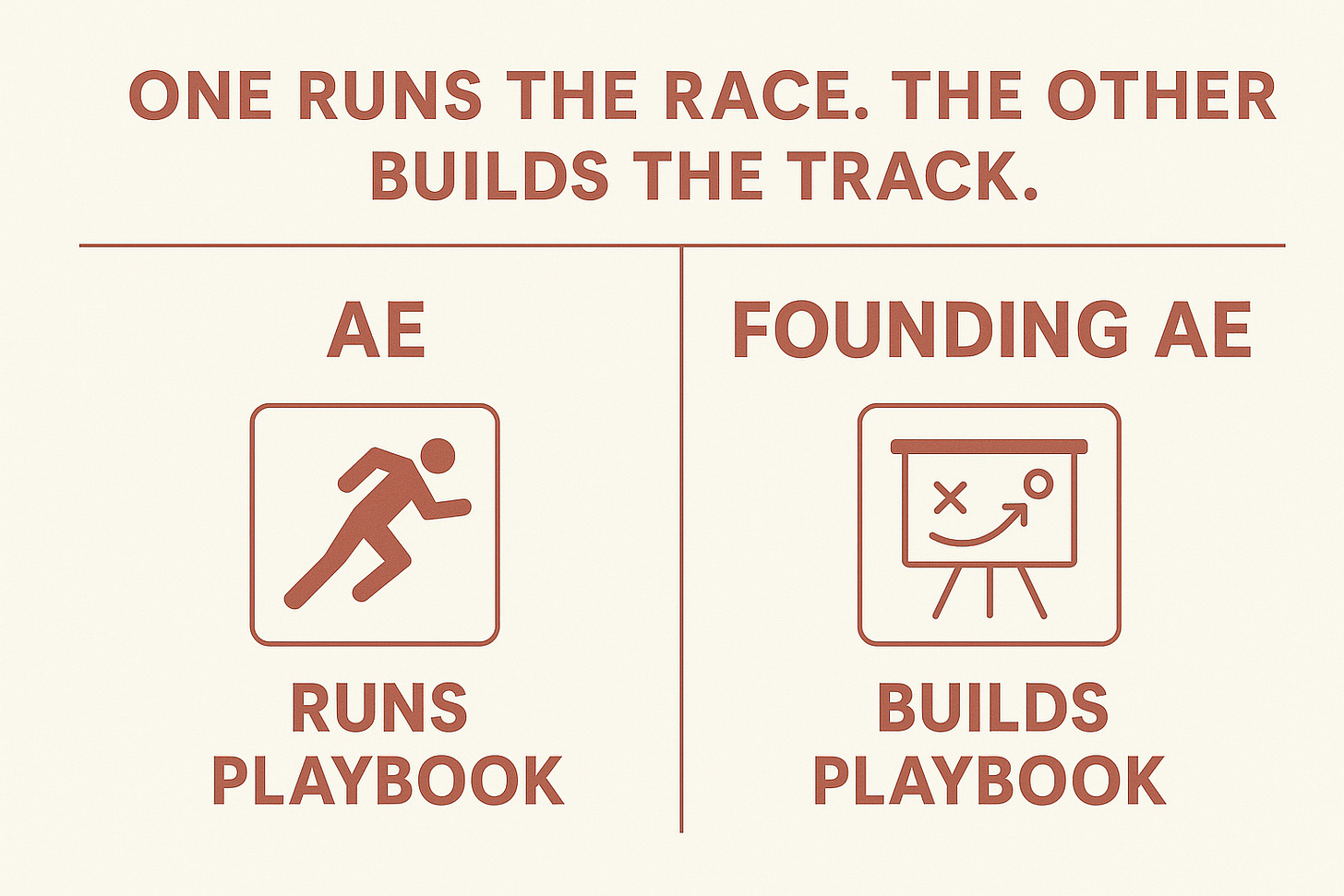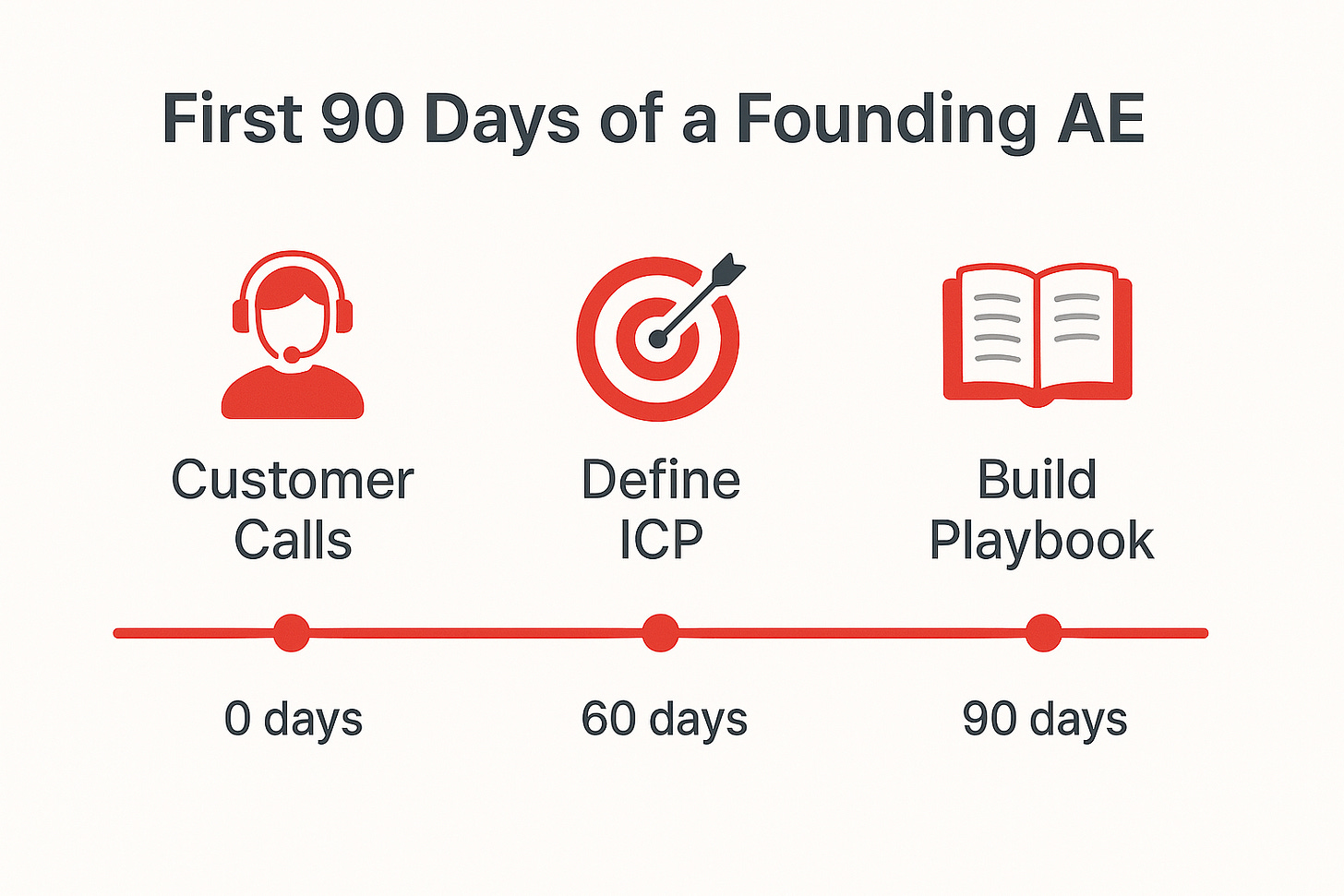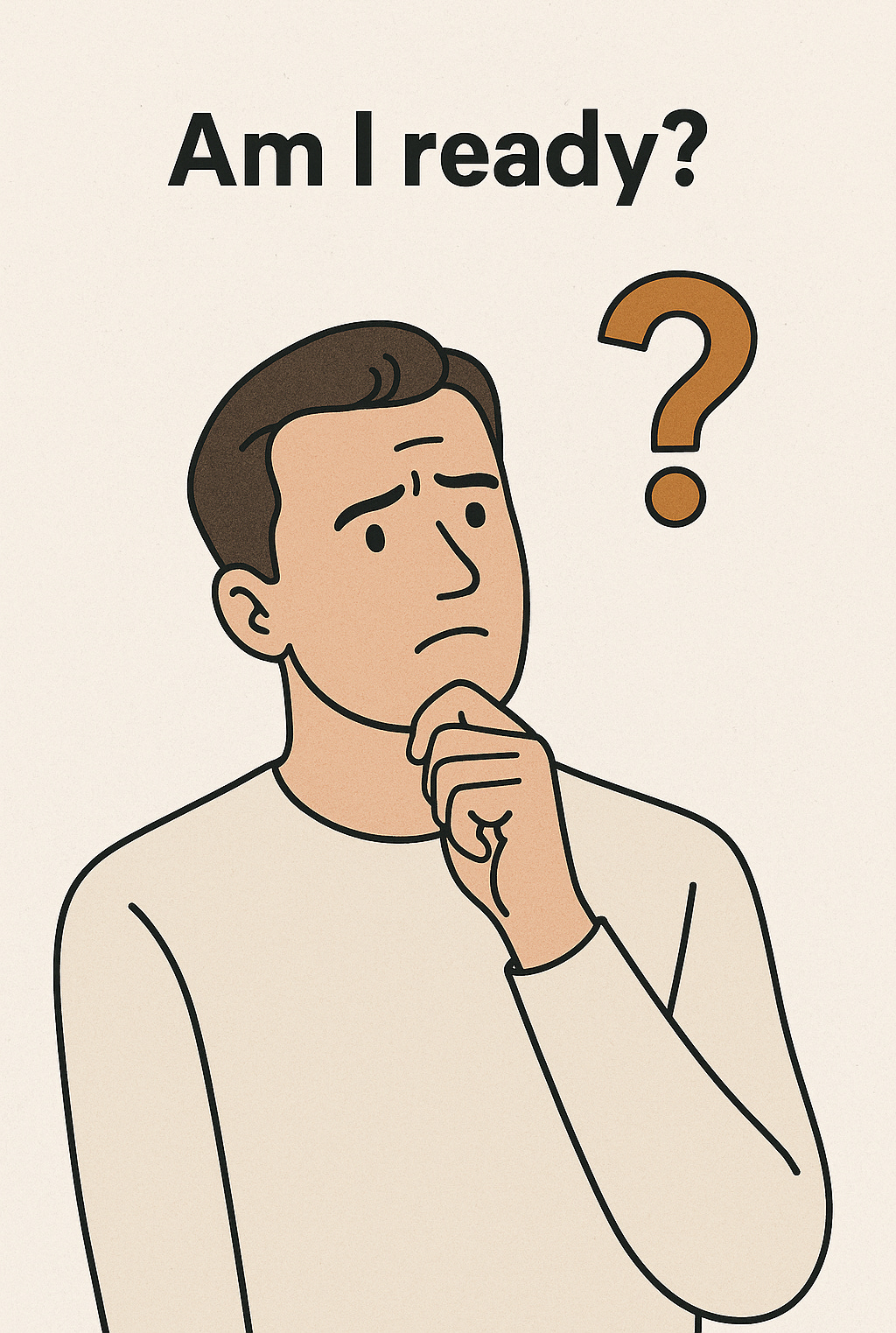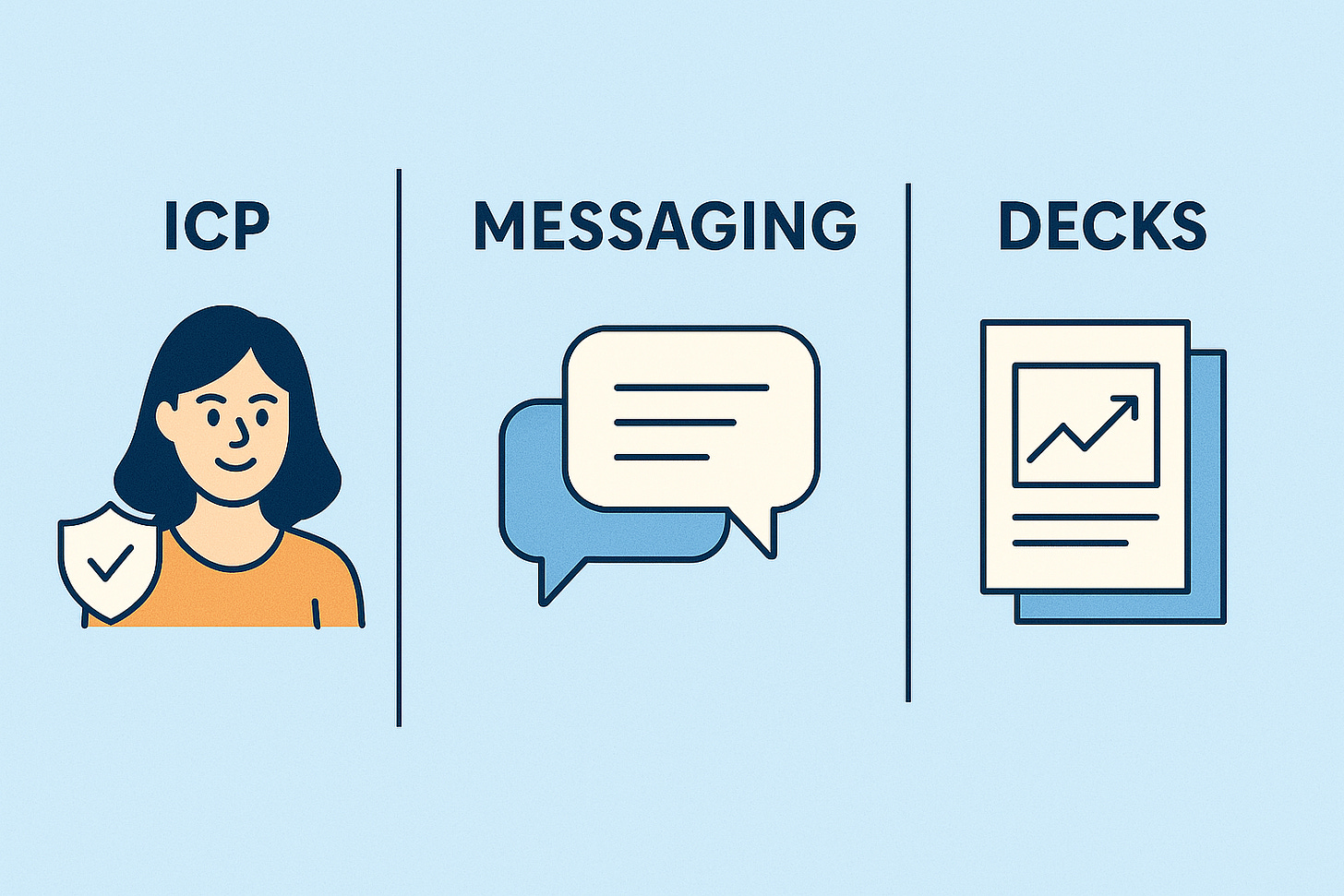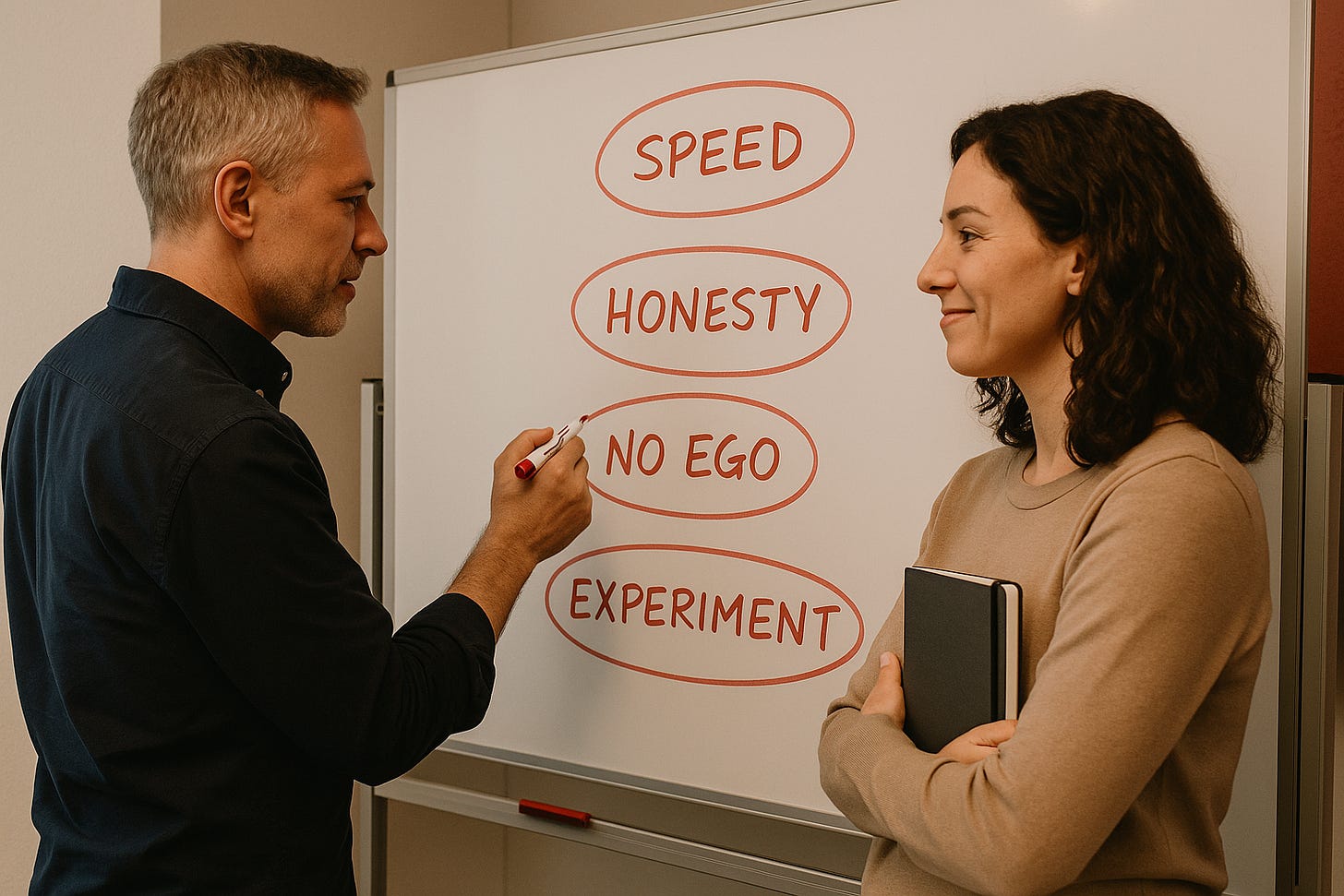When You're Ready for a Founding AE
I keep meeting founders who want a “salesperson” when what they really need is a founding operator who happens to sell.
Those are different jobs. If you hire a regular AE when what you need is a Founding AE, you’ll churn the rep, burn months, and convince yourself the product can’t be sold. If you hire a Founding AE before you’re ready, you’ll hand them a blank map and ask them to reach quota anyway.
Here’s a clean way to think about the roles, what great looks like, and a real checklist for founder readiness.
AE vs Founding AE
What a great AE does
Runs the playbook you already have
Sells what exists today
Works a defined ICP and territory
Leans on existing materials, tools, and process
Provides customer feedback through normal channels
What a great Founding AE does
Translates founder magic into a repeatable motion. Takes how the founder has been closing and turns it into steps someone else can run.
Defines the ICP. Not a persona napkin sketch. Real clarity on the best-use cases, industries, titles, deal sizes, and why those deals move.
Sells the future responsibly. Knows the roadmap cold, sets expectations, secures trust, and lands early customers without over-promising.
Builds the first playbook. CRM hygiene, outreach tools, basic reporting, call recording, a deck that actually matches the pitch, and a simple enablement hub.
Becomes the voice of the customer. Interviews customers, reads every transcript, tags patterns, and feeds specifics back to product, eng, marketing, and the founder.
Orchestrates the company around deals. Pulls in the CTO for technical proof, asks marketing for the one-pager that’s missing, and teaches other functions how to support live sales cycles.
Documents everything. Not gut feel. Clear notes on pilots, pricing, objections, and what unblocked each closed-won so the next hire can repeat it.
A regular AE sells inside a system.
A Founding AE designs a system while selling.
First 90 Days for a Founding AE
If I’m walking in as a Founding AE, here’s how I start:
Customer interviews, immediately. Why they bought, what value shows up weekly, where adoption stalls. I want exact phrases I can reuse in copy and calls.
Deal autopsy. For every close, I map the real path. Steps, stakeholders, time to value, pricing, redlines. If we say “pilot,” what did it actually look like?
Roadmap alignment. What’s shipping in 30, 60, 90 days. What has been promised. What is aspirational. I only sell what eng will back.
ICP definition. Tighten from “anyone with data” to “X-size teams with Y system who care about Z outcome.” Then test with real outbound and refine.
The basic playbook. CRM fields that matter, a lean sequence, a one-pager that mirrors the pitch, a deck built from customer language, a pricing sheet that doesn’t surprise finance.
Pilot standards. One page that defines scope, time, success criteria, data access, and who signs the production order if the pilot hits the mark. Flexible by account, but never custom chaos.
Feedback loop. Weekly notes to product and eng that are specific, ranked, and tied to revenue impact. If it’s not written down, it didn’t happen.
Founder Readiness: The Real Checklist
You’re ready to hire a Founding AE when the answer is “yes” to most of these.
Market pull exists
New customers who did not know you personally have purchased
At least a few look alike in size, use case, and pricing
Inbound curiosity shows up from content, community, or product usage
A path is visible
You can describe the real steps from “never heard of us” to “signed”
You can explain if pilots are required and what “good” looks like
You’ve captured the founder pitch somewhere the AE can study
You can hand off work, not a wish
There is a live pipeline the AE can advance that isn’t only your network
You’re comfortable with the AE calling your customers and hearing the truth
You will show up for late stage calls when title matching matters
You are ready to pay for outcomes
Big commission checks will not trigger resentment
Comp is written, calculable, and you will honor it on time
You’re open to a rational ramp or draw while the motion hardens
You’re building demand, not just hoping for it
The founding team publishes, speaks, or ships consistently
Marketing is at least a part-time function, even if it’s just you with a cadence
You’re hiring a seller to accelerate momentum, not to rescue a flatline
If most of these are “no,” the move is simple. Keep selling as the founder a little longer, document, and create pull. A Founding AE can figure things out. They cannot fix a void.
Pilots: Productized Flexibility
Early deals often hinge on proof. Two traps to avoid:
Custom everything. If every pilot is bespoke, you learn slowly and scale never comes.
Rigid template. If every prospect must contort to your pilot, you’ll miss good business.
Aim for productized flexibility. Standard guardrails with adjustable levers:
Duration
Data scope
Success criteria
Required stakeholders
Commercial outcome if success criteria are met
Put it on one shared page. Confirm in writing. No surprises.
ICP, Messaging, and the Deck
Your founder story isn’t the market story. A Founding AE will turn “why we built this” into “why a buyer moves now.” That process starts with ICP and ends with assets that match reality.
ICP: Choose the highest signal use case with the shortest path to value. Write down who feels the pain, who benefits, who signs, and what they fear.
Messaging: Steal your customers’ language. If your customer says “we kept dropping the ball during handoffs,” those exact words go in the email and the deck.
Deck: One narrative. Problem, current workaround, new way, proof, plan, price. Fewer slides. More screenshots. Roadmap only where it is credible and dated.
Comp for Founding AEs: Make It Real
This role deserves real upside. It also needs cash flow sanity. Here’s a structure that works more often than not:
Higher base during formation. You are buying time to build the motion.
Attainable variable with clarity. Clear rates, when commissions are earned, and when they are paid.
Consider a draw for the first few months. Not forever. Enough to bridge while you create repeatability.
Equity that isn’t wallpaper. If you want them thinking like an owner, give them a path to be one.
The bad smell everyone recognizes: huge OTE built on fantasy pipeline, microscopic equity, and hand-wavy quotas set by a spreadsheet. If you would not be excited to sign that plan yourself, don’t expect your Founding AE to be.
The Cultural Contract
Hiring a Founding AE is not “getting sales off your plate.” It is a partnership. Set the contract up front.
What the AE promises
I will build the first repeatable motion while closing revenue
I will document, teach, and leave breadcrumbs for hire number two
I will represent the customer inside the company with evidence, not emotion
What the founder promises
I will show up to the big calls
I will honor the comp plan and celebrate big checks
I will make time for roadmap, pricing, and process decisions weekly
I will keep publishing so demand keeps rising
When both sides keep that contract, momentum compounds. When one side breaks it, churn follows.
When Not To Hire
You cannot name three customers who bought without personal ties
Your only plan is “they’ll build pipeline from zero while we finish the product”
You refuse to join calls and won’t publish anything about the company
You wince at the idea of a big commission payout
That isn’t a Founding AE problem. That is a founder problem. Keep selling, tighten the ICP, build brand, and try again later.
If You’re A Founder Reading This
Do a 60-minute brain dump today. Talk into a recorder. Have someone transcribe it into one doc:
Why people bought
What moved pilots to production
Real objections and how you beat them
What you promised on roadmap
The three use cases you never lost
The pricing you wish you’d used sooner
That single doc will cut months off your first sales hire. Pair it with this checklist and you’ll know if you’re ready.
If You’re A Founding AE Reading This
Day one, run customer interviews. Write the standards for pilots. Draft the first deck from customer language. Push for a comp plan that rewards outcomes and protects the first build phase. Over-communicate. Write more than you talk. Leave the motion better than you found it.
***If you are a Founder and need help finding a Founding AE email me @daverubinstein@gmail.com


